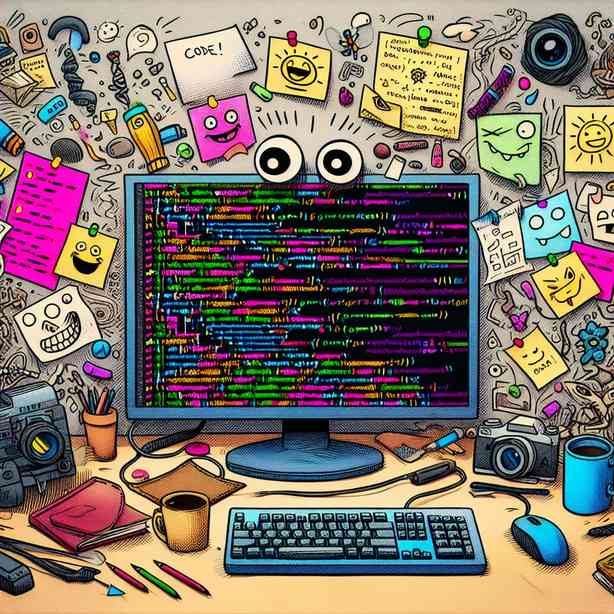
In the intricate world of programming, developers often find themselves caught in the labyrinth of coding while facing tight deadlines and complex algorithms. To momentarily escape the seriousness of their tasks, many programmers resort to humor in their comments. These comments transcend simple descriptions; they bring a sense of levity to the otherwise rigorously structured code. In fact, there are times when the comments accompanying the code can be more entertaining than the code itself.
Humor in coding comments can serve various purposes: it can improve team morale, lighten the atmosphere during intense coding sessions, and even help in easing the frustration that arises during debugging. The ability to break the tension with a clever quip enhances collaboration among team members. After all, programming can often feel like an isolated endeavor, and humor can serve as a bridge to foster camaraderie among developers.
Consider the various scenarios where humor can emerge in coding comments. A common situation arises during the debugging process. Programmers often find themselves facing cryptic error messages or unexpected behavior in their code. In such moments, a well-placed joke can provide not only comic relief but also a moment of clarity. For instance, a comment like, “If you’re reading this, it’s too late to fix the bug,” cleverly encapsulates the frustration of debugging. Such humorous insights can offer a light-hearted reminder that errors are an integral part of the coding journey.
Moreover, using humor in comments can lead to a more engaging environment, particularly in collaborative projects. When a developer includes a wittily phrased comment explaining a complex algorithm, others are likely to take notice and engage more deeply with the code. This interaction not only promotes better understanding but also creates a more enjoyable environment for everyone involved. In turn, this humor helps to build a cohesive team dynamic that can make even the most challenging projects feel more manageable.
Additionally, funny comments can make reviewing code more enjoyable. Code reviews are essential in ensuring quality and maintainability. However, they can sometimes be perceived as tedious or overly critical. The insertion of a catchy quip, like, “This function does ‘x,’ but don’t ask it to do ‘y’ unless you want a wild ride!” can transform a daunting task into a more pleasant experience. With humor, developers may find themselves more open to discussing code, brainstorming improvements, and embracing the feedback process.
From a learning perspective, humorous comments can aid in understanding complex code. When a new developer encounters a particularly tricky section of code, a thoughtfully crafted comment can illuminate the logic while adding a touch of amusement. For instance, a comment that reads, “This is where the magic happens—if by magic, you mean a series of unfortunate events,” not only clarifies the function’s purpose but also lightens the mood. This blend of humor and information can enhance knowledge retention, making it easier for both seasoned experts and newcomers to navigate the codebase.
As we embrace the practice of injecting humor into coding comments, it’s essential to recognize that the balance must be maintained. While humor can undoubtedly enhance communication, it’s essential that comments remain clear and informative. A joke should never overshadow the purpose of the comment, which is ultimately to clarify and explain the code. Developers should strive to strike a balance where humor complements the functional aspect of comments instead of replacing it.
In the journey of coding, it is crucial to remember that frustration and challenges often go hand in hand. Humor acts as a coping mechanism, alleviating stress and providing developers with the resilience needed to tackle obstacles. Hence, well-placed humor in comments can serve as a reminder that while the coding process may be serious, the environment does not have to be stifling. By fostering a relaxed atmosphere where laughter is welcomed, teams can cultivate a healthier approach to tackling complex projects.
In conclusion, the practice of incorporating humor into coding comments goes beyond mere amusement; it fosters camaraderie, eases the burden of debugging, and promotes an engaging learning environment. When programmers strike the right balance between providing clarity and offering levity, they create an enjoyable coding experience that resonates with everyone on the team. In a world where deadlines loom large and the pressure of delivering seamless code is palpable, a little laughter can go a long way. The next time you find yourself writing comments in code, consider sprinkling in some humor—it might just be what your team needs to cultivate a positive, collaborative energy and turn challenges into shared triumphs.


